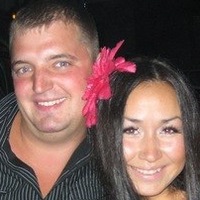
1. Put the verbs in brackets in the correct tense form. A: Yesterday we (read) a story about King Arthur at school.
B: King Arthur? What (you/know) about Arthur?
A: Well, people think he (be) a British king who (live) in the 5th or 6th
century.
B: Oh, now I (remember). Merlin the magician (help) him to become king.
A: That’s right. Arthur (fight) against the Black Knight and (break) his
sword.
B: Yes, and Merlin (go) with him to find Excalibur.
A: Well, you (know) a lot about Arthur. How (you/learn) all this?
B: We (go) on holiday to Cornwall a few years ago. I (see) the ruins of
Arthur’s castle. (you/ever/be) to Cornwall?
A: No, but I’d like to learn more about King Arthur. I think I (go) to the
library tomorrow to find some more stories about him.
B: Tomorrow afternoon? Oh, I think I (come) with you
Ответы на вопрос

Here’s the detailed answer with the correct verb forms filled in the blanks:
A: Yesterday we read a story about King Arthur at school.
B: King Arthur? What do you know about Arthur?
A: Well, people think he was a British king who lived in the 5th or 6th century.
B: Oh, now I remember. Merlin the magician helped him to become king.
A: That’s right. Arthur fought against the Black Knight and broke his sword.
B: Yes, and Merlin went with him to find Excalibur.
A: Well, you know a lot about Arthur. How did you learn all this?
B: We went on holiday to Cornwall a few years ago. I saw the ruins of Arthur’s castle. Have you ever been to Cornwall?
A: No, but I’d like to learn more about King Arthur. I think I will go to the library tomorrow to find some more stories about him.
B: Tomorrow afternoon? Oh, I think I will come with you.
Explanation:
- Past simple (e.g., "read," "lived," "helped") is used to describe completed actions in the past.
- Present simple (e.g., "do you know," "remember") is used for facts and general knowledge.
- Past continuous and past perfect are not required here because the actions in the past are described in sequence, not as ongoing or completed before another past action.
- Future simple (e.g., "will go," "will come") is used for future plans or intentions.
Похожие вопросы









Топ вопросов за вчера в категории Английский язык









Последние заданные вопросы в категории Английский язык





-
Математика
-
Литература
-
Алгебра
-
Русский язык
-
Геометрия
-
Английский язык
-
Химия
-
Физика
-
Биология
-
Другие предметы
-
История
-
Обществознание
-
Окружающий мир
-
География
-
Українська мова
-
Информатика
-
Українська література
-
Қазақ тiлi
-
Экономика
-
Музыка
-
Право
-
Беларуская мова
-
Французский язык
-
Немецкий язык
-
МХК
-
ОБЖ
-
Психология
-
Физкультура и спорт
-
Астрономия
-
Кыргыз тили
-
Оʻzbek tili











